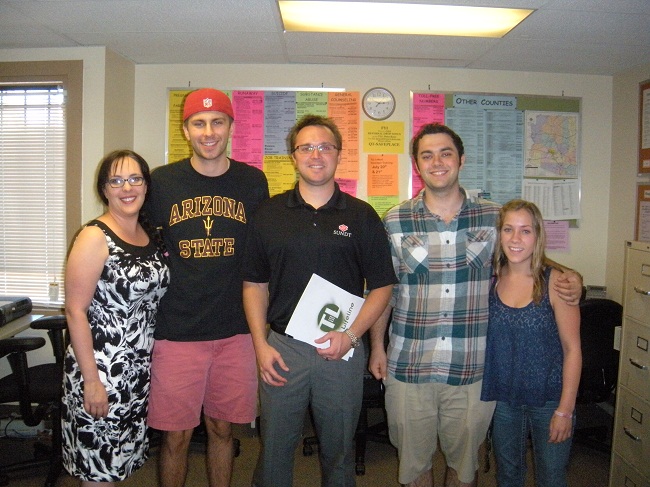
A $5,000 grant from the Sundt Foundation will make a critical difference in the lives of at-risk teenagers in Arizona. The grant went to Teen Lifeline, a nonprofit organization dedicated to reducing the state’s teen suicide rate through the operation of a 24-hour, free, confidential, peer-supported hotline. The hotline is staffed by trained professionals, including at-risk teenagers themselves who have been selected to become peer counselors through an intensive life skills training program.
“Thanks to the Sundt Foundation’s generous support, we are able to provide 72-plus hours of life skills training and ongoing mentorship for two at-risk teens,” said Nikki Klontz, the organization’s clinical director. “These teens will complete their training and go on to become peer counselors on the Crisis Hotline. The teens will volunteer a minimum of 15 hours per month and answer more than 200 calls each from other troubled teens under the supervision of masters level clinicians. The calls could be about substance abuse, physical/emotional/sexual abuse, teen pregnancy, depression and even suicide. For some teen callers, this could be their first call for help and their last call for hope. Thanks to the Sundt Foundation, there are highly trained teens on the other end of the line to help them get the help they need.”
The Sundt Foundation was established in 1999 by Sundt Construction, Inc., as a way for its employee-owners to give back to the communities in which they work. In addition to sponsoring volunteer activities, the Foundation distributes grants every quarter. The money to fund those grants is raised primarily through contributions from Sundt employees, which are then matched dollar-for-dollar by the company.
Since its inception the Foundation has made grants totaling more than $5 million to hundreds of worthy organizations. Approximately 75 percent of the money goes to help disadvantaged children, with the remaining 25 percent dedicated to community issues. Employees can also earmark their donations for charitable organizations that benefit members of the military and their families.